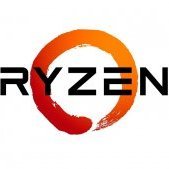Leaderboard
Popular Content
Showing content with the highest reputation on 07/20/19 in all areas
-
Fundamentally we're volunteers, so if you think something needs doing, feel free to step up and contribute rather than say something is a joke. Yes, I do hear comments like that all too often and I treat them all in the same way. When people pay my mortgage and feed my family for the stuff we do then they have the right to complain, because we then we have a customer/client relationship. But when people are using something, for free, made by us in our spare time, I reserve the right to use whatever language I see fit, as our relationship is most certainly not a customer/client one, essentially we have no obligation to do anything. One person saying something as non-specific as "PHP is a joke" does not a problem make, and is not something I'm going to waste any more time with. Sent from my Mi A1 using Tapatalk2 points
-
To add to jonathanm's answer, the script starts a series of partial, read-only, non-correcting parity checks, each with slightly tweaked parameters, and logs the performance of each combination of settings. Essentially, it is measuring the peak performance of reading from all discs simultaneously, and showing how that can be tweaked to improve peak performance. Improving peak performance is not the same thing as improving the time of a full parity check, as your parity check only spends a few minutes at the beginning of the drives where peak performance has an impact, as performance gradually tapers off from the beginning of your drive to the end. If your peak performance was abnormally slow (i.e. 50 MB/s), then that would affect a much larger percentage of the parity check, and improving that to 150MB/s would make a huge improvement in parity check times, but increasing from 164 MB/s to 173 MB/s won't make much of a difference, since essentially you were already close to max performance and that small increase will only affect perhaps the first few % of the drive space. In a similar way, I could improve aerodynamics on my car to increase top speed from 164 MPH to 173 MPH, but that won't necessarily help my work commute where I'm limited to speeds below 65 MPH. But if for some reason my car couldn't go faster than 50 MPH, any increase at all would help my commute time. There are a handful of drive controllers (like the one in my sig) that suffer extremely slow parity check speeds with stock Unraid settings, so I see a huge performance increase from tweaking the tunables. There is also some evidence that tweaking these tunables can help with multi-tasking (i.e. streaming a movie without stuttering during a parity check), and for some users this seems to be true. I know there are some users who have concerns that maximizing parity check speed takes away bandwidth for streaming, though I don't think we ever actually saw evidence of this. That's a shame, as that is really what is needed to make this script compatible with 6.x. LT changed the tunables from 5.x to 6.x, and the original script needs updating to work properly with the 6.x tunables. Fixing a few obsolete code segments to make it run without errors on 6.x doesn't mean you will get usable results on 6.x. I had created a beta version for Unraid 6.x a while back, but testing showed it was not producing usable results. I documented a new tunables testing strategy based on those results, but never did get around to implementing them. It seems that finding good settings on 6.x is harder than it was for 5.x - possibly because 6.x just runs better and there's less issues to be resolved. I still have my documented changes for the next version around here somewhere... That's another shame. Seems like you know what you're doing, more so than I do with regards to Linux. I'm a Windows developer, and my limited experience with Linux and Bash (that's what this script is, right?) is this script. For me to pick it up again, I have to essentially re-learn everything. I keep thinking a much stronger developer than I will pick this up someday. I'm not trying to convince users not to use this tool, and I certainly appreciate someone trying to keep it alive, but I did want to clarify that the logic needs improvement for Unraid 6.x, and you may not get accurate recommendations with this Unraid 5.x tunables tester. Paul2 points
-
I've seen several people reporting slower network speeds (tests and real work performance) are slower after upgrading to 6.7.0 I've seen this with the Speedtest plugin and a Win 10 VM going to speedtest.net. Speed is about 200Mbps slower than in version 6.5.4 (in my case). Others have seen the same issue of speed difference between 6.6.7 (normal expected speeds) and 6.7.0 (slower speeds by 200-300Mbps).1 point
-
Well f off and fork your own. Been running my install since we released without a problem. I got no time for comments like this and am going to treat it with the contempt it deserves. All the code is open source feel free to make a pull request, however, I've yet to see a single person make a comment of this nature actually do so, and I'm not expecting you to be the first. Sent from my Mi A1 using Tapatalk1 point
-
According to https://wiki.debianforum.de/Benchmark_für_Festplattenverschlüsselung you should be able to get 80+ MB/s with LUKS encryption even on an old CPU like that. It certainly won't leave room for other CPU-intensive tasks, but for file storage you should be fine.1 point
-
This. And where are you checking the cpu usage. Doing it via the GUI is naturally going to increase the CPU usage and is to be expected.1 point
-
Dual parity should be OK, depending on the number of data disks, encryption will have a much higher performance impact, since that CPU doesn't support AES instructions.1 point
-
I can fully recommend the Designare EX as long as you don't need ACS Override due to the lag issue I reported. There may very well be some advanced fix that I don't know of but the easiest fix for me is to not use ACS Override and everything runs perfectly fine. Come to think of it, it may be an issue with the i440fx VM machine type (I now use Q35 - that was one potential fix I didn't test). There is really nothing special with my passthrough method. I basically follow the SpaceInvaderOne textbook. vfio stub the devices that need to be passed through dump my own vbios for the GPU and use it (eventhough it's theoretically not necessary since my motherboard BIOS allows me to boot Unraid with its cheapo GPU on slot 3) For a refresher on PCIe passthrough, just watch SpaceInvaderOne youtube videos. They are practically just short of the guy going to your place to do it for you. Of course if you have any problem, feel free to ask.1 point
-
I've released a new version of the Docker to update the hook processing. If you are using the zmeventnotification hook processing, you will have to update your hook file(s) from the zmeventnotification GitHub.1 point
-
I guess this is the solution: Although I would say this is not exactly what I encountered, even without any container update or restart the default admin password still will not change using the webui. Anyway thanks for the heads up! The solution in the readme totally solved the problem it seems. Next time I'll rtfm.1 point
-
1 point
-
1 point
-
Practically anything else that works is better than USB. Having USB-based disks in an array is a guarantee something will go wrong soon, most likely disk dropping offline during heavy use (or sometimes while idling).1 point
-
I’m having these exact same issues. It happened specifically when I upgraded to 6.7. Was getting ~800 Mb/s before the upgrade and am now getting 20-35 Mb/s. Both before and after the upgrade I’ve been using the Speedtest app from the community App Store. Have swapped out cables multiple times, and am seeing similar speeds from qbittorrent and sabnzbd containers.1 point
-
Same issue... I average out around 55Mb/s My win 10pc can do 92Mb/s In firefox on unraid, speedtest.net.. I get 940mbps/940mbps I have a 1.5gb fiber connection.. I was getting around 70Mb/s on unraid, but since 6.7 and previous beta's it's been slow1 point
-
Thank you for your support, this is very much appreciated. When entering the post command directly, it works, but when using the parameter sets it looks like it is working, but does not (ethtool query on eth0 shows parameter "g" set, but nic goes off). I can only guess that this is related to the moment in time, when the command is really issued...or related to a different ethtool version used in the script, compared to the system wide one. Gesendet von meinem SM-G930F mit Tapatalk1 point
-
1 point
-
Not true. The model he has- has "qtier" which is exactly what I am talking about. And if you look at the linked article in my previous post, it tells you exactly what to do to find what things are spinning your disks. If you use that, and qtier to create your hot/cold storage pools, you could effectively prevent disks from spinning for specific things.1 point
-
So last month, I started having some issues writing to certain 8TB drives, but never took note of which specifically since no parity errors ever popped up before or after checks. I was looking into adding more 8TBs to a 19-disk array this week when I realized I’ve been adding ST8000DM004-2CX188s left and right over the past couple of years. SIX disks in a nineteen-disk array (not counting parity) are SMR drives (one is ST8000AS). Some have been going for years with decently intense read use and no real issues now, but reading this thread has me kind of freaking out about the possibility of multiple SMR drives failing simultaneously. Instead of looking to expand, which I still really need to do, I’m now wondering if I’m better off using my next 3-4 HD purchases to replace some of these 8TB SMR drives before I even try swapping some 4 or 6TB drives out with 8TBs. If I’ve made it this far without any failing (three pre-shuck preclears on each drive, too), is there any safe way to stress-test each SMR drive individually and maybe figure out which should be replaced first - or, ideally, if some look like they’ll be more reliable than others, which can stay in safely for awhile, so I don’t need to immediately replace 4 and just leave those 8TBs lying around to eventually replace the SMR 8TB “slot” whenever it inevitably fails? Whole situation feels wasteful, but that’s on me for continuing to buy these drives without looking here for guidance each time... Any help or ideas would be greatly appreciated!1 point
-
Collecting related posts (because different methods have helped different users) - * For login failures, especially with 6.3.0 * Another post from Tom, with a step by step procedure * Tom's post on managing credentials, and clearing them * Enabling older Samba authentication, also tips on debugging Samba connection issues * Posts about reverting to SMB 2.0.2 * How to downgrade SMB * Using 2 different Windows credentials for different shares * The Local Master plugin * Local Master, the LM plugin, and workgroup names - plus the followup 3 posts down (about workgroups and election) * Keeps asking "Enter Network Password" - suggests using guest with no password * Using the hosts file worked? * Registry fix to keep your Windows 10 box from becoming the master browser * Clear summary post, with comment about Win 10 updates * config/smb-extra.conf * Anonymous Login on Windows 7 - might work for other Windows versions too? * more to come, as we find them or they are reported to us ... (calling all fixes! anyone that knows of a helpful tip - please inform us!)1 point
-
One way you can workaround this Windows issue is to refer to the server by name for one user, and refer to the server by IP for the other user. Windows will treat these as if it is accessing different computers and use different credentials.1 point
-
I tried passing through an unassigned usb disk to an osx vm as the primary disk. It was a clone of the startup disk of my macbook pro. I wanted to see if i could "transfer" my macbook pro and all programmes and settings to an unraid vm. Well my identification was External_USB_3.0_2012040931753. When i specified this it gave error that it wasnt valid and vm wouldnt start. I saw the disk was marked as sda. So i did it like this. (I had to change bus to sata for osx) <disk type='block' device='disk'> <driver name='qemu' type='raw' cache='writeback'/> <source dev='/dev/sda'/> <target dev='hdd' bus='sata'/> </disk> The vm booted straight into my macbooks os!!1 point







.thumb.jpg.50fe04ea2fd24fe57ffc99b91ad9a81c.jpg)
